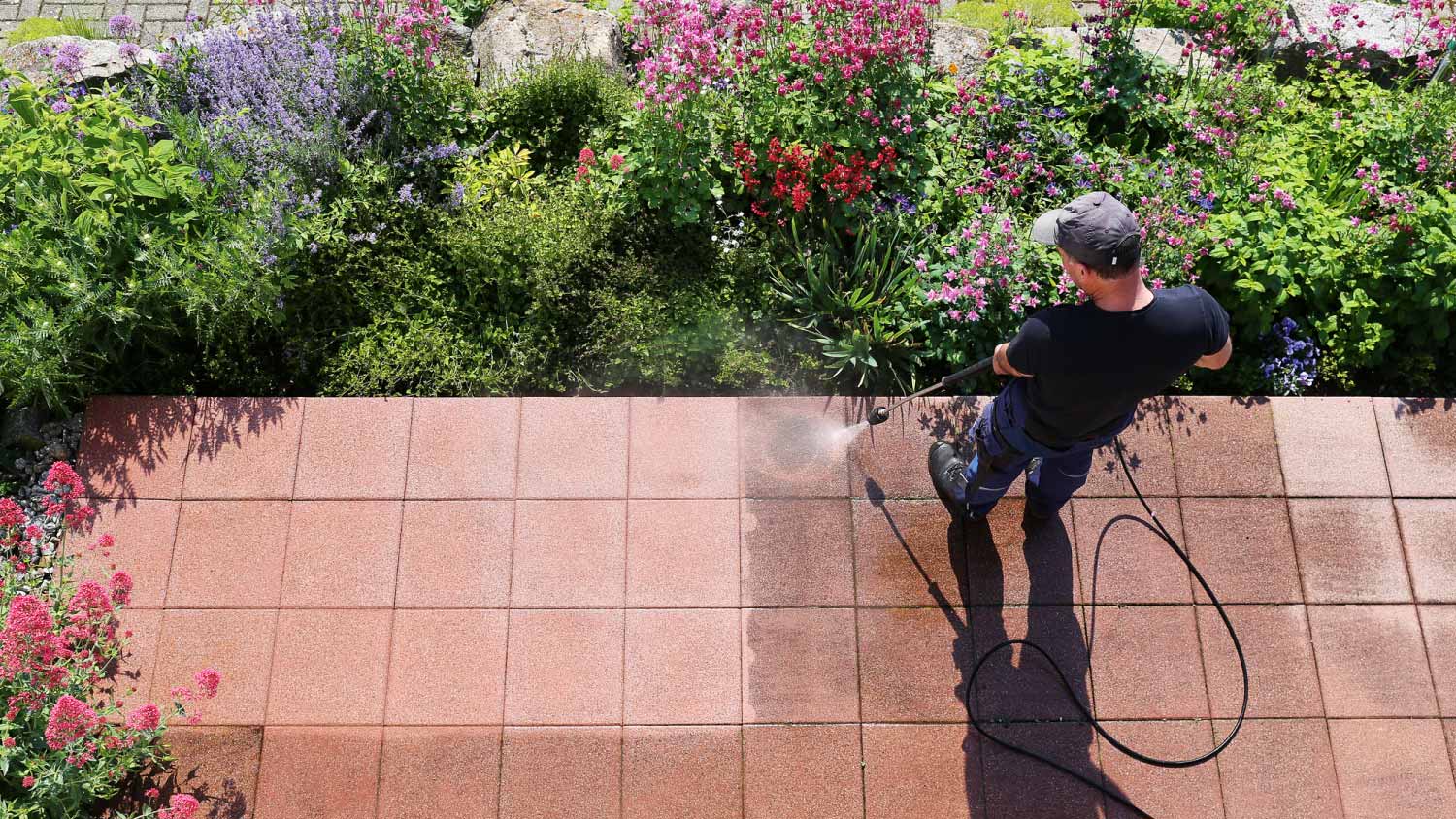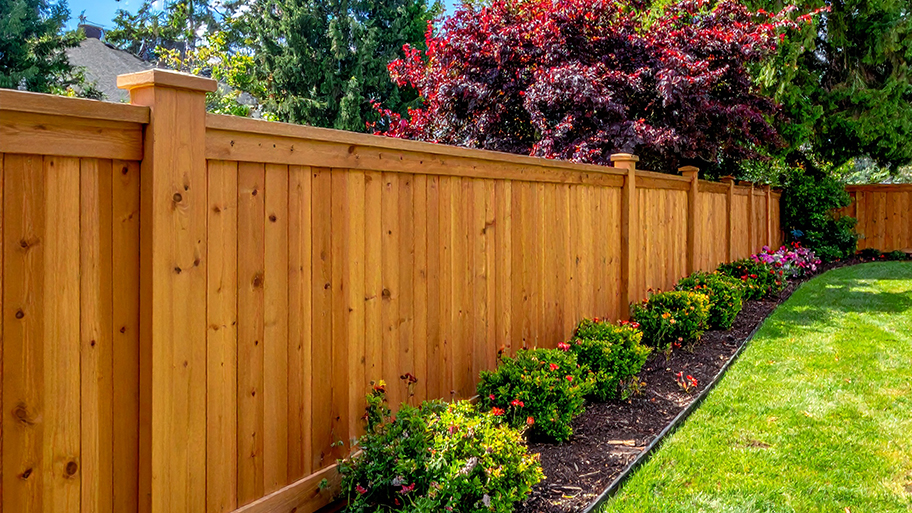
The cost to pressure wash a deck depends on its size, condition, material, and whether you DIY the job. Help set your budget with this cost guide.
You’ve got the power—the power washer, that is


Power washers use pressurized, heated water to clean compatible surfaces. Pressure washers, on the other hand, use only pressurized water—not heat.
Power washers can easily cause damage to surfaces that aren’t durable.
Some people use “power washing” and “pressure washing” interchangeably, so be sure to clarify which one you want when talking to pros.
When it comes to removing stubborn messes from larger areas, like a driveway, it’s hard to choose a better method than power washing. Power washers use highly pressurized water and steam to clean and disinfect hard surfaces in a way that just can’t be replicated by any other tool. However, there can be some confusion in this arena: Power washing is often used interchangeably with pressure washing, but they’re not the same.
Power washing is the act of washing something with a stream of hot, high-pressure water and steam to clean hard surfaces. Power washing is useful for getting serious cleaning done quickly. There’s nothing like a jet of steamy water to remove mildew, mold, and other icks from hard surfaces.
However, power washing does have its downsides. Not every material is sturdy enough to stand up to the pressure and heat of power washing. In those instances, pressure washing makes sense because it doesn’t add heat to the equation.

Although power washing and pressure washing are often used interchangeably, these terms can also describe totally different machines. As its name suggests, a pressure washer uses the pure power of pressure alone to help make hosing down your home more effective. A power washer, on the other hand, includes a heating element to turbocharge the cleaning process even more.
That makes power washers ideal for removing dirt that’s built up over time, along with substances like salt, grease, and mildew. Power washers can even kill weeds and keep them from coming back, at least for a little while.
So, how do you know when to use power washing versus pressure washing? Think about the difference between a hot wash cycle and a cold wash cycle in your washing machine. Both can get clothes clean, but one also disinfects.
However, just like a hot wash cycle can fade or wear out your clothes more quickly, power washing can cause damage to some types of surfaces. It should be reserved only for very durable materials or very dirty situations (we’re looking at you, mold and mildew). If you need to power wash anything around your home, consider letting a pro handle the job so that you don’t have a DIY disaster.

If you’re hoping to wash a more delicate surface, like a wood deck or brick siding, pressure washing without heat is a better choice—and even then, you may want to use a lower pressure setting. (Still, some materials may need to be soft washed rather than pressure washed.) Pressure washing is also a good choice for less intensive cleaning jobs, like those that don’t involve mildew or mold.
Finally, pressure washing might be a better choice for DIY pressure washing. While power washers can cost thousands of dollars, you can buy a cold-water pressure washer for just a couple hundred bucks.
Still have questions? A power washing pro near you can help. Don’t forget to clarify whether you want “power washing” or “pressure washing” when speaking with a pro since some people do use these terms interchangeably.
From average costs to expert advice, get all the answers you need to get your job done.

The cost to pressure wash a deck depends on its size, condition, material, and whether you DIY the job. Help set your budget with this cost guide.

Pressure washers can help you keep your home looking great. Use this guide to learn how much it costs to rent a pressure washer based on factors like type and time.

Pressure washing your fence can restore its appearance and keep your home looking great. Learn how much it costs based on factors like square footage and material.

Investing in a pressure washer can make it easier to keep your house looking great. Use this pressure washer buying guide to learn all about how to choose the right pressure washer for your home.
Pressure washers have many uses from cleaning patios to scrubbing cars. This guide covers the most common pressure washer uses to help you make the most of this tool.

If your pressure washer won’t fire up, there are many things it could be. Find out why your pressure washer is not starting with this guide.